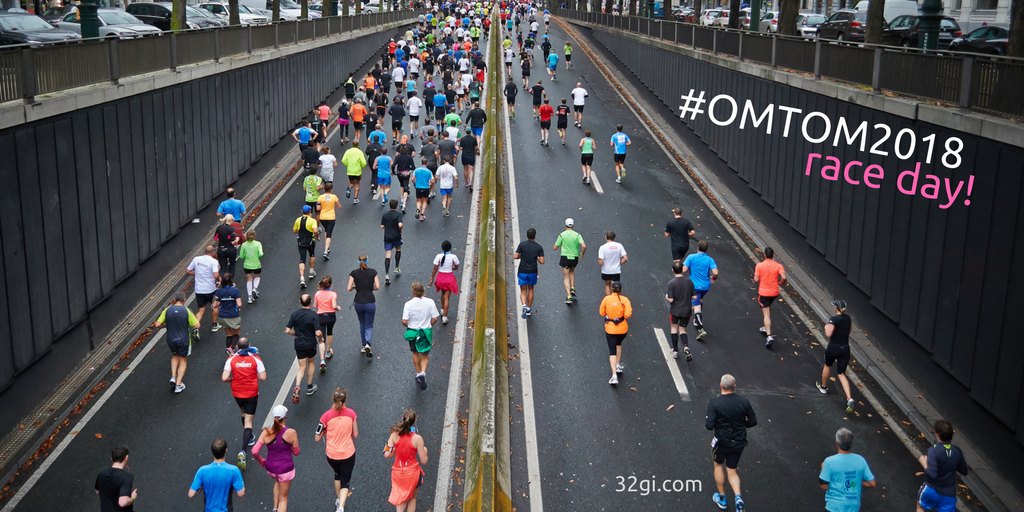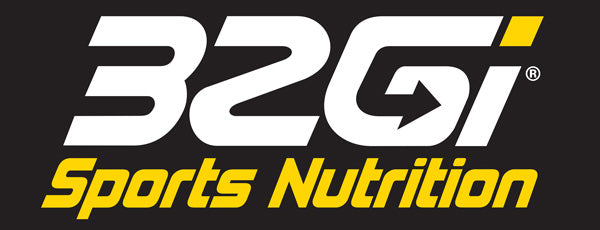#OMTOM2018 is here! Our fourth tip podcast in the build-up to the event is all about race day nutrition. Don’t miss out on this comprehensive yet compact guide to Old Mutual Two Oceans Marathon race-day nutrition with Mark Wolff.
Transcription:
David Katz: Mark Wolff joining us on the line. Race day, I mean nutrition is key in the build-up, post, but race day, of course, extremely important. The Old Mutual Two Oceans Marathon is upon us, Mark Wolff, what are the key elements that people should be looking around? Race day of course we’ve got breakfast, we’ve got during the race, what are the things that are important on race day?
Don’t skip your pre-race meal
Mark Wolff: For me one of the most critical parts of race day is actually your pre-race meal. A lot of people tend to not eat before a big race but it’s so crucial you have to. What you take in the morning of race day is going to actually play a very crucial role in fuelling you during that race.
I always tell people it’s best to eat a meal that will provide you stability and also give you the energy requirements that you need during that event. In that case we’ll look for a slightly higher carbohydrate meal, unless you’re a high fat low carb eater.
But depending on the kind of diet that you follow you need to try and keep it simple and clean. The best time to eat would be at least a minimum of two hours before the event. So that you’ve got enough time to have it digested and absorbed. Generally, depending on your weight, you’d look at something anywhere between I’d say 250-400 calories of intake at that time of the morning. Don’t skip your pre-race meal, it’s very important.
Pre-race meal ideas
People ask me what kind of meals you should eat. First of all, I always tell people, don’t just ask me what I would eat because what I eat might not be suitable for you. But I have given ideas where somebody could eat, for example, rolled oats and a bit of peanut almond butter or a half a banana.
You could eat some banana on toast, you could have a sweet potato. You could have some rice or quinoa and peanut butter. Some oatmeal pancakes, you could have eggs on toast, eggs and avo. It really depends on the kind of person you are, what kind of diet you follow. But very crucial to eat that pre-race meal.
Remember, what you eat before the race is going to help fuel you during the race and one of the things that you need in an ultra-distance event is a topped up fuel tanked. You cannot head into an event without a topped up fuel tank.
Handling hydration correctly
When heading off to the event, make sure you do hydrate sufficiently, but do not over-hydrate because at that time of the morning it’s very cool. The last thing you want to do when the event starts is feel like you’ve got a very heavy stomach, a very overloaded bladder and you need to go to the toilet, so that’s very important as well.
Again, keep the high fibre out of the food, try and keep it as low fibre as possible so you don’t get any irritable bowel. Then we need to look at race day fuelling. Race day fuelling is very crucial and you should have practiced this in your training.
If you haven’t, you have completely fallen short of actually preparing properly for the event because nutrition is very crucial. You cannot just rely, first of all, with what’s on the course if you haven’t tried and tested it and second of all, you should be planning what you’re going to take with you on course in order to be able to fuel yourself properly.
Best way to fuel in an endurance event
The best way to fuel in an endurance event, specifically a Two Oceans Marathon is to make sure you separate your hydration and your energy requirements out. Think about hydration in terms of, this is what’s going to keep my body hydrated and it’s going to keep the fluid in it. That you need to know how much you’re going to be consuming for an hour and separate to that, you need to understand your energy requirements.
Your energy requirements come from calories of course, and that will be in the form of carbohydrates, for most people. In the form of carbohydrates you need to understand how many carbohydrates you require per hour to keep you sustained through an event.
One of the things that I do advocate to runners specifically because running does actually aggravate the digestive system. Running is quite a high impact sport and it does aggravate the digestive system. What I recommend is smaller feeds, frequently, as opposed to bigger feeds spaced far apart.
The reason I say it is because the digestive system can cope with a small amount of calories at a time and utilise and absorb it as opposed to actually dealing with a very big amount of calories at one time and I find that that’s called a ‘drip feed’ method, I find it works very well.
Carb amount conundrum
Fuelling every 20-30 minutes as opposed to every 45 minutes to an hour would probably be a lot easier on the digestive system. It would allow you to balance that energy system out a lot better. That’s basically if you want to call it, eat small and frequently but it’s measuring your food intake by time. In other words, clock feeding and making sure you do take something every 20-30 minutes.
For runners, some runners can get away with as little as 20-30g of carbohydrates per an hour, and some need to take more. But I would say anywhere between, the 20-60 mark would be absolutely fine. You don’t need to take in more than that, especially if you’ve combined that with a pre-training meal as well. Remember, it’s not about the amount of carbohydrates that you’re taking in, it is about what your body is capable of absorbing and utilising.
Anybody can consume a large amount, but it does not mean that the body is going to utilise and absorb that amount of carbohydrates. So, it’s very important to understand. One of the things I do need to emphasise is that if you take in too much carbs, if you overdo it with the sugar, it can lead to muscle cramping. That is a fact!
How to avoid stomach cramping
Do not overdo it, you rather want to underdo it and the reason being is that the minute you overload your stomach with glucose, concentrated fluids and it cannot be absorbed, it’s going to sit there. It’s actually going to cause havoc with fluid absorption as well.
What’s going to happen is; you’re going to have a very, very sort of high glucose concentrate in the stomach and the fluid is going to battle to get out. It can lead to cramping. It can also lead to stomach cramps and to a very irritable feeling. It can also lead to a little bit of dizziness and nausea, it’s the last place you want to be. Take in the least amount of fuel to achieve the greatest result and that’s exactly what I say to people.
Remember, it’s an ultra-distance event; there is no ways that you will fuel that on only your glycogen stores. Your glycogen stores in an event like that will mostly be depleted, so it is a fat fuelling event, it is more pace controlled. You don’t need to take in a large amount of glucose at any one time and spike your insulin levels, it’s just not required.
How to get the most out of caffeine
I do get asked a lot, what about caffeine. When it comes to caffeine I always tell people, “If you haven’t tried and tested it in training, then there’s no reason to try and test it on the day.” If you are a caffeine consumer during an event, then by all means you could use it.
Caffeine is best taken probably in the morning with your pre-race meal. You could take caffeine and there we look at anywhere between, I’d say 1-3mg of caffeine per kg of bodyweight. But again, you need to have tested that and then you could take it at the start of the event.
Generally caffeine starts metabolising around 60 minutes, so you would want to try and get in caffeine, I’d say at least once an hour. There are some people that take more caffeine and some people like to take it every 30 minutes. Then there are some athletes that like to take it only in the last bit of a race in order to wake up the brain.
It has been shown to help improve performance because it actually wakes up the brain, it helps with mental focus. But if you are taking caffeine, make sure that it’s a measured amount of caffeine and you understand how much to take per an hour.
What role protein needs to play
As far as protein goes, in an event, if you’re going in an ultra and it’s going a lot longer than 4-5 hours, you can consume protein en route, just to help act as a buffer and delay the onset of muscle fatigue. It also helps satiate you, in other words, it gets rid of the hunger pangs and it does break up that intake of glucose. So protein can be consumed as well and it might be worth taking if you’re going to go for that period of time.
Please make sure that you are prepared from a race nutrition perspective. If you’re not prepared, you better start thinking about it very soon and make sure you’ve got some sort of plan for the big day. On the day, stick to your plan, don’t deviate and you will get to the finish line feeling a lot happier and a lot more comfortable. I wish you all the best of luck, may you have a great race.
DK: All you need to know about Two Oceans race day nutrition with Mark Wolff.








